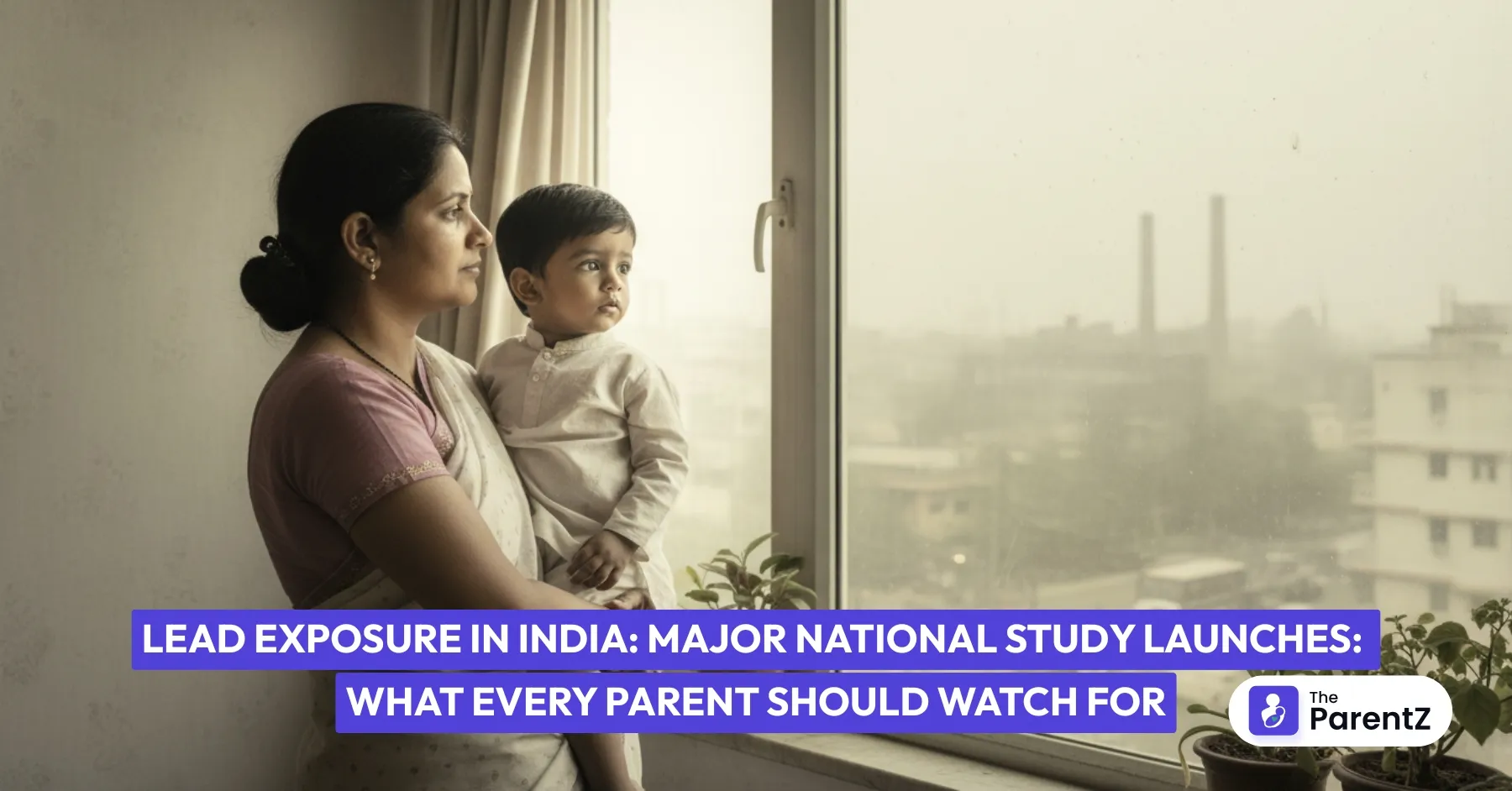If you're a parent in India, here's something you need to know: your child might be exposed to lead right now, and you probably don't even realize it.
A recent major study looked at blood lead levels in Indian children, and the findings are eye-opening. Researchers analyzed data from 65 reports across the country, and what they found should make every parent sit up and pay attention.
The Numbers That Should Worry You
The average blood lead level in Indian children is 10.4 micrograms per deciliter. Now, you might be thinking, "What does that even mean?" Doctors say there's NO safe level of lead in blood. Zero. None. But anything above 5 is considered dangerous enough to warrant action.
Out of 800 million children worldwide with dangerous lead levels, 275 million are in India. That's nearly half of all Indian children. One out of every two children in India has too much lead in their blood.
Why Should You Care?
Lead isn't like other health problems. It doesn't just make your child sick for a few days. It causes permanent damage. Here's what happens when a child is exposed to lead:
- Their brain doesn't develop properly: Studies show that children with lead poisoning score 3-5 points lower on intelligence tests than their peers. That might not sound like much, but it's the difference between average and struggling in school.
- They have trouble paying attention: Lead affects the parts of the brain that help kids focus and control their behavior.
- It affects them for life: The damage doesn't go away. These children grow up to earn less money throughout their lives. In fact, India loses an estimated $236 billion every year (that's 5% of our entire GDP) because of reduced productivity from lead-poisoned children.
- It can make them more aggressive: Research has found links between childhood lead exposure and anger management issues, even violent behavior later in life.
Where Is This Lead Coming From?
Lead is hiding in places you'd never suspect:
- Your kitchen: Some aluminum and metal cookware contains lead. That turmeric you're adding to dal? It might be contaminated with lead chromate. Recent studies found lead in spices across India, especially turmeric.
- Beauty and religious items: Sindoor, kajal, surma, and even bindis can contain dangerous levels of lead. If you're applying kajal to your baby's eyes (a common practice), you might be poisoning them.
- Your neighborhood: If you live near a battery recycling plant, you're in a high-risk area. More than 80% of toxic sites assessed in India were contaminated with lead from battery recycling. And here's the shocking part: over half of all batteries in India are recycled in informal, unsafe operations.
- Children's toys: A recent study in Bihar found that many households had toys with lead levels exceeding safe limits. One toy had more than 4,300 parts per million of lead.
- Paint in your home: Nearly 80% of homes tested had at least some detectable lead in paint.
What Can You Do Right Now?
Don't panic, but do take action.
- Test your child's blood: This is the most important step. Many children show no symptoms, so testing is the only way to know. Talk to your pediatrician about getting a blood lead test, especially if you live in Bihar, Uttar Pradesh, Madhya Pradesh, Jharkhand, Chhattisgarh, or Andhra Pradesh (these states have the highest levels).
- Check your spices: Buy turmeric and other spices from reputable brands. Avoid extremely bright yellow turmeric, as it might be adulterated with lead chromate.
- Be careful with traditional cosmetics: If you use kajal, surma, or sindoor, either stop using them or test them for lead. This is especially important if you apply these products to young children.
- Replace suspicious cookware: If you're using old aluminum pots or decorative metal cookware, consider replacing them with stainless steel or ceramic options.
- Keep your home clean: Lead dust can settle on floors and surfaces. Regular wet mopping and dusting can reduce exposure.
- Wash hands frequently: Make sure children wash their hands before eating, especially after playing outside or with toys.
- Stay away from battery recycling areas: If you live near an informal battery recycling operation, understand that your family is at high risk. Even formal, licensed operations can be dangerous if they don't follow proper safety standards.
There's Hope, But We Need Action
The study shows that lead levels have been gradually declining over the past three decades, mainly because we stopped using leaded petrol in 2000. That proves that when we take action, it works.
But we're not doing enough. While children with "no known exposure" are seeing improvements, kids who live near industrial sites or other lead sources still have dangerously high levels (averaging 14.3 micrograms per deciliter).
This isn't just a government problem or a company problem. It's a problem that affects every family in India. The researchers are calling for regular blood testing programs, better regulation of battery recycling, testing of food products, and cleanup of contaminated sites.
Conclusion
Your child might look healthy, act normal, and seem fine. But if they've been exposed to lead, damage is happening that you can't see. It's stealing IQ points. It's affecting their future earning potential. It's changing who they'll become as adults.
The first step is awareness. Now that you know about this silent crisis, you can take steps to protect your family. Get your children tested. Check your home for lead sources. Talk to other parents about this.
Because every child deserves a chance to reach their full potential, and lead exposure is stealing that from millions of Indian children right now.






Be the first one to comment on this story.